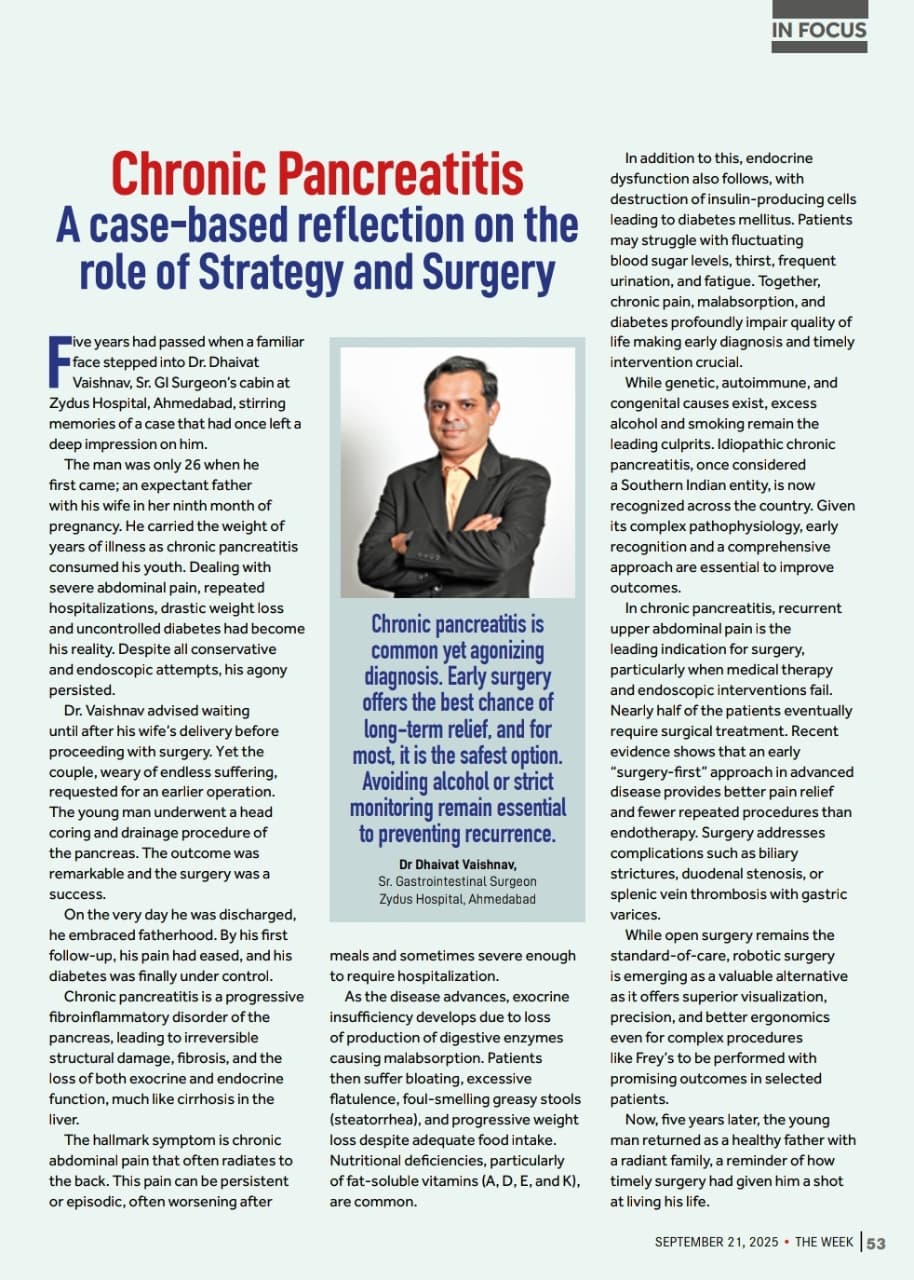A gastroenterologist is a physician who specializes in the gastrointestinal tract (including the esophagus, stomach, small and large intestine) and other digestive organs (liver, pancreas, bile ducts, and gall bladder). Gastroenterologists see patients in the hospital and clinic, and also perform endoscopic procedures (e.g., upper endoscopy and colonoscopy). All of The Gastro Clinic Gastroenterologists are board certified and highly trained. They completed four years of medical school, three years of internal medicine residency, and between two and four years of gastroenterology fellowship.
No. Gastroenterologists perform endoscopic procedures, but do not perform surgery. When necessary, they work closely with GI surgeons.
Your first visit will allow your gastroenterologist to evaluate your symptoms. As part of that consultation, your gastroenterologist may request additional tests or procedures, such as blood tests, imaging studies, or endoscopic examinations for diagnosis or treatment.
Yes, a colonoscopy may detect polyps (small growths on the lining of the colon). Your gastroenterologist will remove these polyps during the colonoscopy. Removal of polyps will result in a major reduction in the likelihood of developing colorectal cancer in the future.
Heartburn is a burning sensation behind the breastbone that results from the reflux (back flow) of acid and other stomach contents from the stomach into the esophagus (swallowing tube). Normally, acid should remain in the stomach when a meal is eaten. Heartburn arises when the “valve” (called the lower esophageal sphincter) between the esophagus and the stomach relaxes abnormally.
The control of heartburn varies greatly among individuals. If heartburn is mild and occurs only intermittently, it is important to determine what precipitated it.. In general, we recommend the following measures to relieve heartburn:
- Use brick blocks to elevate the head of the bed between 4 and 6 inches. Extra pillows should not be used as they may actually aggravate heartburn. If bricks become uncomfortable for you or your partner, the use of a firm wedge to elevate your trunk and head can be substituted.
- Avoid coffee of any type (including decaffeinated), tomatoes and tomato products, citrus fruits and juices, chocolate, mints, caffeinated beverages, alcoholic drinks and fatty foods.
- Do not lie down for at least 3 hours after eating a meal.
- Stop smoking.
- Lose weight and avoid wearing tight fitting garments.
- Use various medications according to the severity of your heartburn.
If heartburn is occurring more frequently than two or three times a week, it is important that you consult a gastroenterologist to determine the severity of your heartburn and whether or not further tests may be indicated.
Although heartburn is merely a nuisance in the vast majority of cases, it can also be a warning sign that more serious problems may be occurring. If you are over age 40 and are having heartburn or “indigestion” for the first time it is imperative that you see a physician as soon as possible. Many persons who are experiencing angina (decreased blood flow to the heart) may experience what they consider heartburn or indigestion. So, it is essential to get a correct diagnosis immediately.
If you know you have heartburn, and experience it over a long period of time, an evaluation by a gastroenterologist is important. Acid refluxing into the esophagus can damage the esophagus, leading to inflammation or esophagitis, which can lead to more serious illness, including, in the most extreme cases, cancer of the esophagus. Acid reflux can also lead to or worsen asthma, chronic cough, hoarseness and even erosion of the teeth. While this is relatively uncommon, certain individuals are at a high risk for the development of severe complications. The most important factors include the duration of heartburn (how many years) and the severity of the symptoms.
Ulcers are most commonly caused by infection with a bacterium called Helicobacter pylori (H. pylori). It resides in the stomach and causes an inflammation of the stomach (gastritis). Although a very large number of individuals, particularly those over the age of fifty, are infected with this germ, in most individuals it causes no harm and has no symptoms. In only a small proportion, less than five percent, will ulcers develop. Currently, it is recommended that antibiotics be used to treat this infection if it is associated with a proven peptic ulcer.
In addition to H. pylori, one of the most common causes of ulcers is the use of aspirin and a class of drugs called nonsteroidal anti-inflammatory drugs (NSAIDs). These drugs include prescription medications such as such as Motrin and Naprosyn, as well as over-the-counter medications such as Advil and Aleve. Tylenol and other forms of acetaminophen do not cause ulcers, but their use in very large doses, or in combination with alcohol, can lead to liver damage. It is also important to realize that certain medications that one can purchase without prescription, such as Alka-Seltzer, Goody Powder and Standback, also contain aspirin and can lead to serious damage to the stomach.
Finally, a significant proportion of individuals develop ulcers without infection with H. pylori or without consuming NSAIDs. If you are experiencing pain in the center of the abdomen below the rib cage, see a gastroenterologist to determine whether or not you do have an ulcer.
Irritable Bowel Syndrome (IBS) is a common disorder of the intestine that leads to crampy pain, gas, bloating, and changes in bowel habits. Some people with IBS have constipation, others have diarrhea, and some people experience both. Sometimes a person with IBS has the urge to move the bowels but cannot do so. The cause of IBS is unknown and while there is no cure, effective treatment is available.
Hepatitis C is a virus that infects the liver. It is the most common form of viral hepatitis and the most significant cause of chronic liver disease in the U.S. Hepatitis C is commonly transmitted by contact with contaminated blood. Twenty to thirty percent of people with chronic hepatitis C get cirrhosis of the liver. The progression of hepatitis C is slow and usually is not diagnosed until liver problems develop. Cirrhosis caused by hepatitis C can lead to hepatocellular carcinoma (liver cancer). If you have any of the following risk factors you should have a simple blood test to diagnose if you have been exposed to Hepatitis C.
A simple blood test can tell whether you have Hepatitis C. Patients with chronic Hepatitis C must be closely monitored by a gastroenterologist, and in some cases treatment can be offered.
A polyp is a growth often occurring in the large intestine, colon. Polyps rarely cause symptoms. Some polyps are precancerous meaning that if not removed they could develop slowly into a cancer.
Yellow jaundice is a discoloration of the skin, best recognized in the eyes and under the tongue. Sometimes it is accompanied by dark urine. In almost all instances is it caused by a liver condition that must be evaluated by a physician. If you do have jaundice, see your doctor immediately.
In general, no. Only in very rare circumstances can hemorrhoids bleed profusely requiring hospitalization.
Yes. A healthy diet can help reduce the risk. In general, eat five or more servings of fruits and vegetables a day, replace red meat with chicken, fish, nuts, and legumes, and take a multivitamin containing 0.4 mg of folic acid.
Moderate physical activity, at least 30 minutes per day, is also important. This may include brisk walking, dancing and gardening. Start slowly and build up to 30 minutes per day. Of course, exercise has myriad health benefits and even moderate exercise can help reduce the risks of many diseases. Maintain a healthy weight and avoid smoking, as well.
You need to consult your doctor. Blood in the stool warrants an endoscopic examination of the large intestine (colon) to identify a possible source of the bleeding even if you suspect hemorrhoids. If you bleed a lot you must go to the nearest ER for immediate evaluation.
There are many reasons why swallowing is impaired usually related to the esophagus (swallowing tube) such as acid reflux or, in some cases, cancer. You must see a gastroenterologist to identify the reason of your problem.
Pancreatitis is a rare disease in which the pancreas becomes inflamed. Damage to the gland occurs when digestive enzymes are activated and begin attacking the pancreas. In severe cases, there may be bleeding into the gland, serious tissue damage, infection and cysts. Enzymes and toxins may enter the bloodstream and seriously injure organs, such as the heart, lungs, and kidney. There are two forms of pancreatitis. The acute form occurs suddenly and may be a severe, life-threatening illness with many complications. Usually, however, the patient recovers completely. If injury to the pancreas continues, such as when a patient persists in drinking alcohol, a chronic form of the disease may develop, bringing severe pain and reduced functioning of the pancreas that affects digestion and causes weight loss.
Your doctor may want you to have an esophageal manometry because you have difficulty swallowing, pain in swallowing, non-cardiac chest pain (a cardiac work up has ruled out heart problems), or if you have had chronic heartburn in the past and may now be considering surgery as an alternative to continued medication.
Anyone over the age of 50, regardless of gender or race/ethnicity, is at increased risk of colorectal cancer and should be screened. Individuals with a family history of colorectal cancer or polyps are at an even higher risk and warrant screening at an even younger age. Screening should begin around age 40 if only one first-degree relative (parent, sibling or child) had either cancer or polyps, and as early as 25 if multiple first-degree relatives were affected. Patients with a personal history of colorectal polyps, cancer or inflammatory bowel disease (ulcerative colitis or Crohn’s disease) are also at high risk and warrant periodic colonoscopy.
There are four main screening tests for colorectal cancer, including stool blood testing, flexible sigmoidoscopy, barium enema and colonoscopy. The tests vary with respect to accuracy in detecting polyps or cancer, risks, convenience, discomfort, preparation, frequency of repeat testing and costs. While any of the tests may be appropriate for individuals at increased risk because they are 50 years of age or older, colonoscopy may be a better choice for those at higher risk because of personal or family history of colorectal cancer or polyps, or because of a history of chronic inflammatory bowel disease. At-risk individuals need to discuss the various options with their provider.



